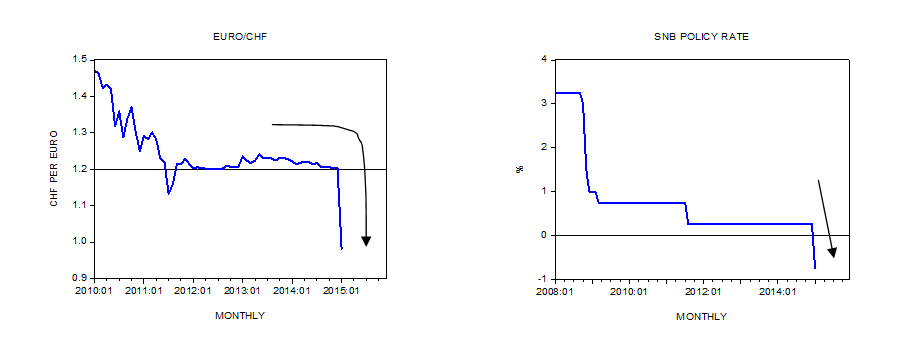If we step back from everything that is going on in the U.S., and in Greece and Europe, one can say that the endgame ultimately is devaluation of financial assets. It is almost as if these disruptive financial technologies enabled overproduction of financial assets. They increased productivity and they created oversupply, and that excess supply needs to be liquidated. But the liquidation is what governments don’t want to allow. So they are trying to support the prices of goods and services that have been overproduced, which are financials.
As long as confidence can be maintained in the underlying currencies, this game can carry on, but at some point it now seems inevitable that there will be an endgame. The conclusion from Simon Mikhailovich’s point of view should be read, bearing in mind this man is no gold bug but a derivatives expert with proven form in the field.




The examination of debt should not avoid the CAUSE of the debt.
Contrary to Putin’s boy Max Keiser (presently on the goggle box as I type this)the debts of most (not all – but most) European Union countries are not caused by bankers (and where it is caused by banks, as in Ireland and PARTLY in Spain, then the banks should be allowed to go BANKRUPT not bailed out).
In most countries in the E.U. government debt is not from bankers – it is from the out of control of WELFARE STATES.
Whatever is done (or not done) to banks will not help countries like Greece whose governments (again contrary to the propaganda of the left) have made promises to the population that are IMPOSSIBLE to deliver.
Nor is this just confined to the European Union countries.
For example, it is obvious that the United States Federal government is de facto bankrupt (about 16 TRILLION Dollars in debt and pileing up 100 billion plus deficits each year on top of that). It finances itself by the Federal Reserve creating money (from nothing) and then lending out this money on the understanding that the borrowers will use the money to buy U.S. government debt (any shortfall is met by the Federal Reserve buying U.S. government debt itself).
Anyone who believes that the above system (creating money, from nothing, and then lending it to one’s self in order to pay for the entitlement programs Medicare, Medicare…..) is sustainable, is insane and we need not waste time considering them.
However, American States and cities are also (in may cases) de facto bankrupt – just not so openly.
There is FOUR TRILLION Dollars of unfunded pension and other obligations relating to State and local governments in the United States. As (contrary to fools) the economy is hardly going to improve over time, this means that various States and cities can not possibly meet their legal obligations – i.e. they are de facto bankrupt (it just has not become obvious as yet).
Yet banks (such as the bank the left loves to hate – J.P. Morgan Chase) still sell State and local government debt (almost all the States have balanced budget provisions in their constitutions – they get round that by saying the bonds are to fund “capital” projects using all their tax revenue to fund pension obligations and so on, totally unsustainable). I would argue that anyone who deals in State and local government debt KNOWING (which they must do) that it can not possibley be paid, is not acting an ethical manner.
Nor can this problem be solved by just breaking government unions (good though that may be) as such things as unemployment benefits and Medicare are also partly paid for by State governments (the last State to fall to Medicare was Arizonia – I remember weeping when I heard that this State had fallen for this Ponzi scheme, yes I was that much of a nerd as a child).
The “fiscal” side directly effects the “monetary” side.
American (and now European Union) monetary policy is unsustainable, partly because American (and European countries) fiscal policy (the out of control Welfare States) are unsustainable.
“It will be like the 1930s”.
Sadly it may well be a lot worse than that. In the United States in the 1930s the old and the sick (and….) were not used to “entitlements” from government, they were mostly looked after by their family, by fraternities (secular and religous) and by their communities (note to socialists “community” like “society” does NOT mean “state”), now the old cultural institutions (such as the family) have been undermined (in BRITAIN as well as the United States) – the 1960s cultural revolution (so beloved by the left) has seen to that. And not “just” the family has been undermined – voluntary associations (secular as well as religous) have been undermined.
As even a “liberal” sociologist (Putnam) has noted we now “bowl alone” (if we do any out of the work and home activities at all) – virtually the only voluntary thing most people do now with groups of other people is, get drunk.
The state (the government) will look after all from “cradle to grave” – that has meant ever growing entitlement programs that have created an impossible fiscal burden. So governments have turned to monetary policy, “cheap money”, to create phony financial sector profits to tax (Mr Brown’s policy in Britain). But monetary expansion (as everyone on this site knows) is not a long term option.
“In the long run we are all dead” – the long term is now next year (2013). Is the policy of the left that the entire population of the Western world should commit suicide so that we may avoid the “long term”?